News & Media
Unisa adds academic muscle to technical and vocational education in SA
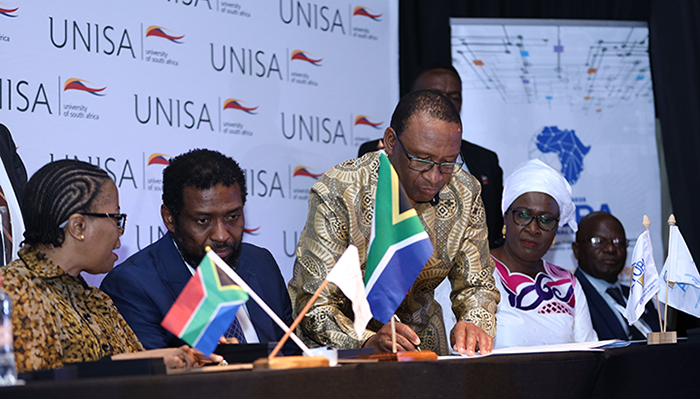
At the MoU signing, from left: Prof Puleng LenkaBula, Unisa Principal and Vice-Chancellor, Buti Manamela, Minister of Higher Education and Training, Prof Sello Mokoena, Local Organising Committee Chair, Dr Jahou Samba Faal, ATUPA Secretary-General, and Dr Tafadzwa Mudondo, ATUPA Executive Board Chair
On 26 August 2025, at the commencement of the week-long 2025 Association of Technical Universities and Polytechnics in Africa (ATUPA) International Conference, jointly hosted by Unisa and ATUPA, the two institutions signed a memorandum of understanding (MoU). The collaboration aims to foster innovation and pivot youth skill sets for Africa’s rapid development and growth.
Present at the signing ceremony were Prof Puleng LenkaBula, Unisa Principal and Vice-Chancellor, Dr Tafadzwa Mudondo, ATUPA Executive Board Chair, Dr Jahou Samba Faal, ATUPA Secretary-General, Buti Manamela, Minister of Higher Education and Training, and Prof Sello Mokwena, Local Organising Committee Chair.
Unisa committed to Africa’s visions and aspirations
In her welcome address at the opening of the 2025 ATUPA International Conference, LenkaBula remarked that Unisa is committed to shaping African lives in the service of humanity. She added, "We believe in the advancement and transformation of Africa. Our commitment to advancing science and education is demonstrated in many ways, including through our international partnerships and engaged scholarship programmes. Our engagement with ATUPA is also informed by our abiding commitment to Pan-Africanism as an emancipation project. We truly believe that Africans can unite, integrate and develop through science and education as envisioned in Agenda 2063 and prior blueprints that define the vision and aspirations of Africa."
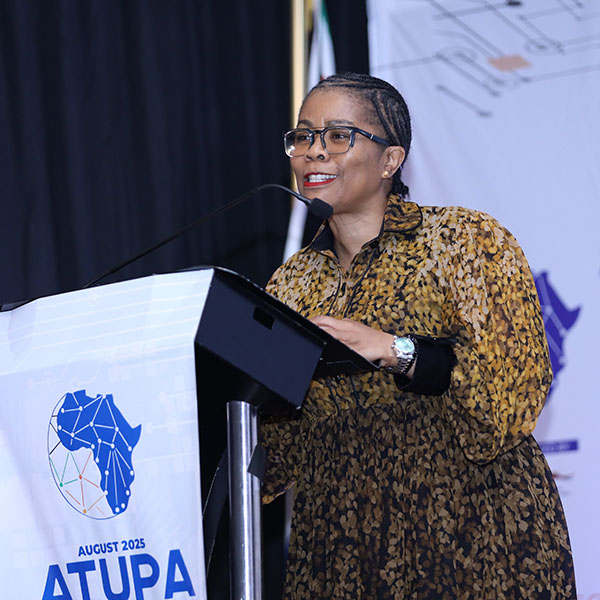
Prof Puleng LenkaBula, Unisa Principal and Vice-Chancellor
Continuing, LenkaBula explained that the idea of a technical higher learning institution is to cater for education specialisation in fields such as engineering, technology and applied sciences, focusing on practical, hands-on training, industry partnerships and innovative problem-solving in society. "It is one of the ways in which our universities find relevance and offer great public value to society," she added. "Therefore, through ATUPA, we are able to connect with each other as an integrated sector of post-school education in Africa to unite and look at ways to advance technical and vocational education and training, among other joint priority areas."
Furthermore, the VC stated that at the national level, Unisa continues to grow its strategic partnerships with sector education and training authorities (SETAs) and the technical, vocational education and training (TVET) system, because, she said, "Our priorities are deeply ingrained in the growth and excellence of the TVET sector through research, innovation, teaching, and learning. We engage in practical collaborations to advance the TVET sector because we know its true potential in transforming our economy and the lives of many young people and South Africans at large."
Pedagogy aligned with the aspirations of Africa
Concluding, LenkaBula focused on Africa’s curriculum design and content, explaining that it must first point to and address the needs of the Global South, adding, "Our pedagogies must truly align with the aspiration of Africa from every facet of our curricula. For example, suppose we want to change the patterns of trade between African countries and between Africa and the rest of the world. In that case, we must teach and train the African youth to master the entire value chain of transforming mineral wealth into goods and services that can be consumed by the African market and the world at large."
Interconnected driver of innovation, employability and inclusive development
In his keynote address, Manamela emphasised that by fostering collaboration among technical universities, polytechnics, TVET colleges and their industry partners, ATUPA has not only emerged as a critical partner in this transformation, but in addition enables Africa to rethink education not as a siloed system but as an interconnected driver of innovation, employability and inclusive development.
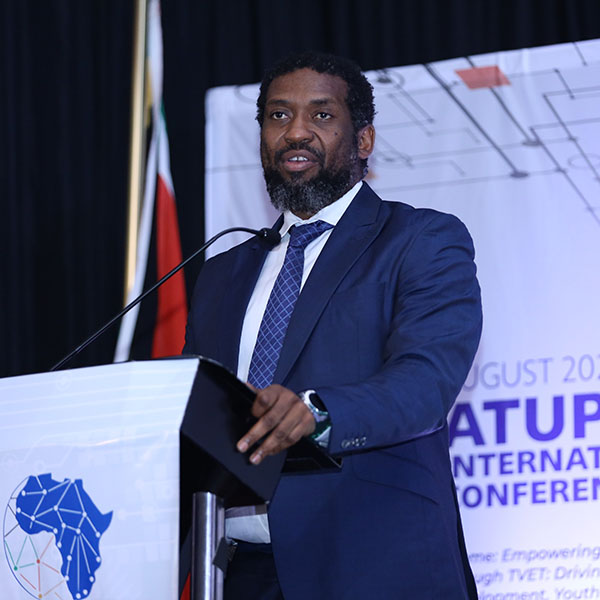
Buti Manamela, Minister of Higher Education and Training
South Africa’s commitment to TVET and skills development
Manamela said South Africa remains deeply committed to strengthening and expanding TVET ecosystems. He explained: "Our National Development Plan 2030 recognises that without a skills revolution, the promise of inclusive growth will remain elusive. Over the past decade, we have expanded the TVET college sector, continued to modernise curricula, and launched initiatives to improve lecturer development, occupational qualifications, and workplace-based learning."
First-choice pathway toward meaningful employment and entrepreneurship
Expanding on current projects engaged in by the Higher Education Ministry, Manamela stated: "We are currently working closely with our partners, including ATUPA, the African Union, the Quality Council for Trades and Occupations, UNESCO-UNEVOC, and international development partners, to align our national TVET system with global and continental standards. Firstly, this ensures that our learners are not only competitive in South Africa but are also prepared to thrive across Africa and beyond, and secondly, that TVETs become a first-choice pathway toward meaningful employment and entrepreneurship."
Concluding, Manamela stated: "Let us seize this opportunity with boldness. Let us commit to a TVET system that is innovative, inclusive, sustainable, and globally competitive. And let us do so together, for our nation’s prosperity and our people's dignity."
* By Godfrey Madibane, Acting Journalist, Department of Institutional Advancement
** Photography by the Unisa Multimedia Centre
Publish date: 2025-08-27 00:00:00.0


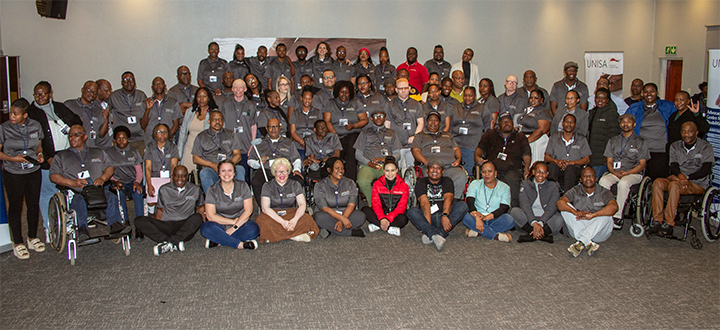 Strengthening disability-inclusive practices across higher education
Strengthening disability-inclusive practices across higher education
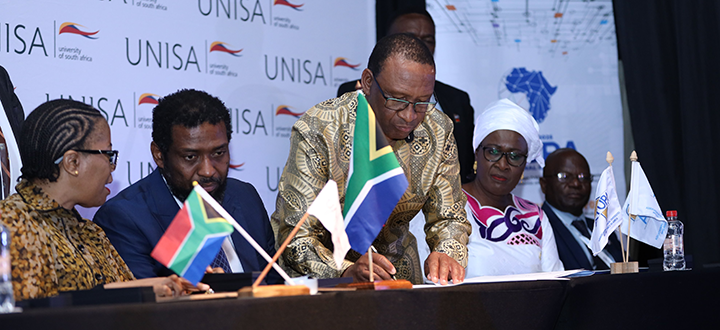 Unisa adds academic muscle to technical and vocational education in SA
Unisa adds academic muscle to technical and vocational education in SA
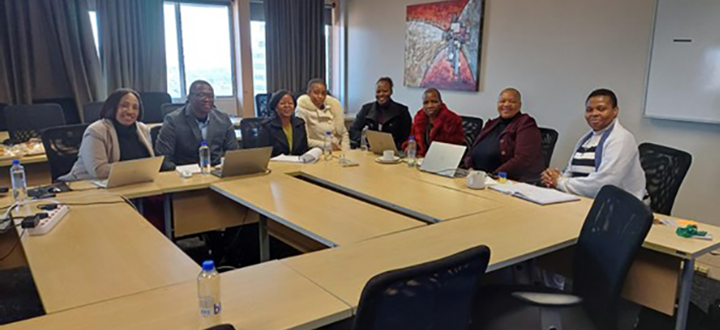 Unisa project envisions a humanised and student-centred approach to health interventions
Unisa project envisions a humanised and student-centred approach to health interventions
 Unisan to lead SASCOC psychology working group
Unisan to lead SASCOC psychology working group
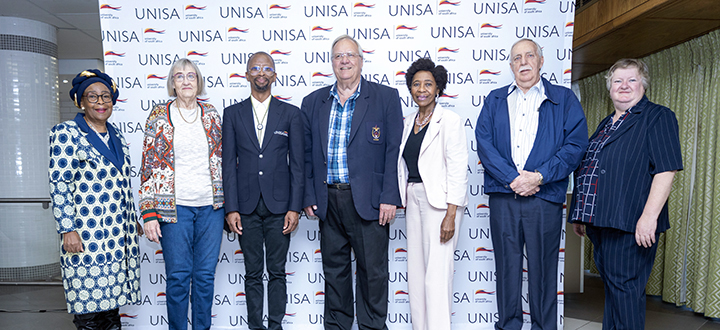 'Retired from work, not from life'
'Retired from work, not from life'